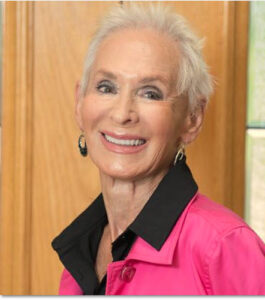

The passage of the Social Security Act in the 1930s set into motion the gradual development of a leisure-oriented retirement mindset and lifestyle that has become the model for the retirement years. In my opinion, that model is the worst thing that has happened to healthy older people because a leisure-oriented lifestyle for older individuals destroys years of potential vitality. The mind and body, regardless of age, are not designed to luxuriate in leisure as a lifestyle. The old cliché, “use it or lose it” kicks in and “losing it” quickly becomes reality.
A “given” of the traditional retirement model is that once you get to your 40s you have reached “middle age” and at that time you are expected to accept and put into practice established ways of thinking and living that gradually lead to decline. In more ways than you can imagine, you are primed to start accepting that you are a senior. Let’s ensure we understand the power of the word “senior”: The word means “old” with all the real and subliminal negatives that accompany being old.
The “deadly model”
Each decade after the 40s has its own unique senior-oriented norms to follow if the model is to be adhered to. Friends and relentless media messaging of all kinds encourage you to adopt the mindset and lifestyle that has been established as each decade’s norm.
How well you age depends on whether or not you accept and adopt the traditional model for senior living and thinking for your stage of life. You DO have a choice about how you should think and live and, consequently, how you age. You DON’T have to accept and live by the established model.
The mantra that has developed over the years and leads to acceptance of the decline-oriented leisure retirement model is “I worked hard all my life and deserve my retirement.” Of course, you deserve your retirement. You paid into the system during your work years, and indeed, you DO deserve to receive the promised benefits. However, adopting and applying that “I deserve” mantra doesn’t guarantee it will make you happy or fulfilled.
Anyway you look at it, starting traditional retirement is traumatic.
Think about it: On the last day at work, you are “somebody”- defined by your work or the amount of success you achieved. It doesn’t matter whether you sort mail in the mailroom or occupy the executive suite on the tenth floor and have a secretary/gatekeeper sitting outside your office controlling who has access to you. Love or hate what you do, you have a purpose. Indeed, you are “somebody”.
The day after you retire, you are “nobody” in particular, just another retiree eager to claim your pot of leisure gold, ready to adopt the mindset and lifestyle that goes with traditional retirement.
Your goose is cooked, and this is why:
The early years of leisure-oriented retirement is the honeymoon phase. You finally get to do everything you dreamed of while slaving away at your work. It’s Nirvana on steroids. You continue to enjoy your new freedom; without realizing it, the “retirement virus” kicks in. That virus causes you to prefer leisure over effort, and you love it. Unfortunately, you don’t have a clue that you have the “infection” because when your brain is not deliberately challenged regularly, the “pleasure center” that prefers leisure over effort takes over. Your decision-making ability and memory diminish, making you unaware that decline is occurring.
If you have family around you, they probably see the decline—the slowed speech and slower movement. Without telling you that they see you are declining, they start to do for you those tasks you had been able to do before, and if not for your lifestyle choice, you probably would still be able to do. While you may deny your edge is gone, you realize you are not as sharp as you used to be and gratefully accept whatever help is offered. And the decline continues.
Much “retirement decline”, particularly mental deterioration, can be avoided or delayed if you have the courage to live and think “out of the box” and look for the most healthy and fulfilling ways to live in the retirement years.
While you still can, take an inventory of your skills — things you are sure you can do. Hang on to those skills as long as possible. Please don’t allow loving friends and family to “help” you when help is clearly not needed. You know yourself better than anyone. Stand up for yourself as long as possible. You can do more than you or they think you can.
Barbara, you really need to go on tour and spread your wisdom to those in their 40’s and 50’s. Get them before they buy into the debilitating societal mindset about aging and retirement. You have lived it, seen it and have come out the other side with vitality, wisdom and the attitude of defiance and agelessness!